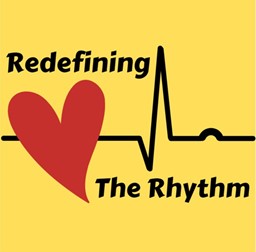How FITs Can Advance Health Equity
The year 2020 brought a heightened sense of urgency to addressing longstanding health disparities, including those pertaining to cardiovascular disease. It was also the year I started my cardiology fellowship. On the one hand, I felt eager to dive into initiatives to promote cardiovascular health equity; after all, it was the reason I was drawn to medicine and to cardiology. On the other hand, I found myself busy simply trying to learn the basics of cardiac catheterization and echocardiography. I asked myself what I could do as a trainee to bridge disparities I was seeing firsthand in the hospital, while also acknowledging the need to focus on skill building in order to become a good cardiologist.

To answer this question, my co-fellow Jason Sherer, MD, and I started a podcast, Redefining the Rhythm, where we interviewed six FITs who have already made strides in fighting cardiovascular health disparities during their training. We learned about the many innovative ways our peers have found solutions for complex and deep-rooted disparities. Anezi Uzendu, MD, drew on his experiences as a cardiac arrest survivor to start a community outreach initiative to address disparities in cardiac arrest survival. Quentin Youmans, MD, created a near-peer mentorship program to promote diversity and inclusion among medical students and residents. Prakriti Gaba, MD, is working to rethink clinical trial design and diversity in recruitment. Other FITs are also centering diversity and equity in their work in basic science and telemedicine – one FIT is even producing a Spanish-language cardiology podcast.
We posed the same question to each guest on our podcast: What advice would you give trainees who are interested in promoting cardiovascular health equity, but may feel overwhelmed just trying to survive the clinical and academic rigors of fellowship?
Here are the five most important lessons we learned from interviewing our fellow FITs:
- Try to remember who you were when you started your journey in medicine.
When many of us started medical school or even residency, we harbored the noble goal of making a difference in our patients' lives. It can be difficult to remember that between working long hours, preparing presentations, doing research, or studying for boards, but regularly reminding yourself why you went into medicine in the first place will serve to ground you. In remembering who you were five or 10 years ago, you can make choices that are centered around your interest in promoting cardiovascular health equity. - Carve out even 30 minutes a week to think about how to make a meaningful, positive impact.
Multiple FITs emphasized the need to reflect on what you are passionate about. Once you do that, choose one or two things to focus on and set aside some time to regularly work on these "passion projects." Whether this is community outreach, mentoring, or podcasting, working consistently toward a goal during training will pay off as you work toward a point where you'll have more control over your time. - Promoting cardiovascular health equity is a team relay, not a sprint.
A single individual cannot do everything – rather, making strides in cardiovascular health equity is a team effort. Build a network, find partnerships, seek out strong mentorship and actively mentor others. Every FIT spoke extensively of their significant support network that made their various endeavors a success, including mentors, sponsors, and peers. We are all in this together! - Advocate for the patient in front of you.
Every day, we take care of individual patients in the hospital who are affected by disparities and implicit biases. As trainees, we can play a tremendous part in promoting cardiovascular health equity by shifting the culture in our individual practice. That could mean taking a few extra minutes to educate a patient regarding their medications or calling out implicit bias against a patient. These small efforts can have rippling effects and inspire others to also change their practice. - Don't forget to take care of yourself.
Feeling overwhelmed during training is a valid feeling. Do the things that nourish you and your family first. That may be as simple as taking a long shower, playing with your kid at the park, or delving into fun activities like cooking Jamaican food or raising guinea pigs! When you acknowledge and address own needs, you fill enough "gas" in your tank to advocate for larger positive change around you.
Needless to say, we finished our podcast season feeling refreshed and inspired. As the next generation of cardiologists, we have so much to learn from one another. Together, we will truly redefine the rhythm of cardiovascular health.


